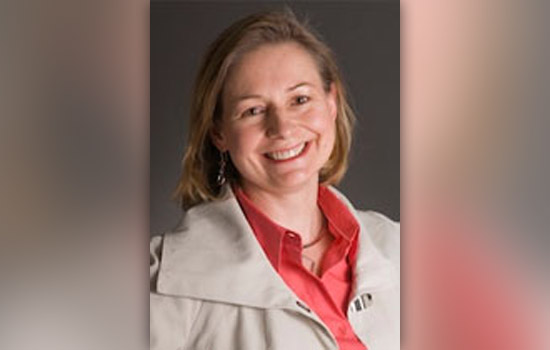Researcher to present on affective computing
Rosalind Picard is next presenter in Digital Humanities Distinguished Speaker Series on April 3
Rosalind Picard
Rosalind Picard’s research is dedicated to making intangible emotions measureable through “wearable technology” and novel techniques—with applications from autism communication to human-computer interaction. For people with autism, or others who have difficulty expressing and interpreting their emotions, Picard’s innovative new tools may be the answer to unlocking rich emotional insight.
Picard, founder and director of the Affective Computing Research Group at the Massachusetts Institute of Technology Media Laboratory, is the next speaker in Rochester Institute of Technology’s new lecture series—“Where Text and Code Collide: The Digital Humanities Distinguished Speaker Series”—examining the digitalization of the humanities, along with the ways that the humanities have affected our relationships with science and technology. She speaks at 8 p.m. Wednesday, April 3, at RIT’s Chester F. Carlson Center for Imaging Science Auditorium.
Picard is also the leader of the Autism and Communication Technology Initiative at MIT, and co-founder, chief scientist and director of Affectiva Inc., which creates technology to help measure the dimensions of emotion. For example, a skin sensor worn on your hand can detect electrical signals on the skin surface in the wrist and be compared to signals in the brain, resulting in the ability to measure emotions such as excitement, delight, anger and anxiety.
Picard’s book, Affective Computing, was instrumental in launching a new field with the same name. Her work showcases the benefits of blending human-centeredness with new technologies which results in enriched user experiences, more human applications and technical innovations supporting, for example, healthcare solutions, market research, or gaming, robotics, and virtual reality.
Picard is an international leader in envisioning and inventing innovative technology. Her group’s achievements have been featured in The New York Times, The London Independent, National Public Radio, PBS’ Scientific American Frontiers, Time, Wired and Vogue, among others.
The presentation—free and open to the public—is sponsored by the RIT Project for the Digital Humanities, College of Liberal Arts, and Gannett Endowment for the Humanities.










